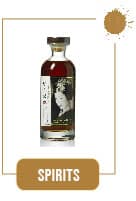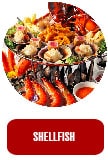No products
Catalog
- 1907
- 1918
- 1924
- 1925
- 1929
- 1931
- 1933
- 1934
- 1937
- 1938
- 1939
- 1940
- 1941
- 1942
- 1943
- 1944
- 1945
- 1946
- 1947
- 1948
- 1949
- 1950
- 1951
- 1952
- 1953
- 1954
- 1955
- 1956
- 1957
- 1958
- 1959
- 1960
- 1961
- 1962
- 1963
- 1964
- 1965
- 1966
- 1967
- 1968
- 1969
- 1970
- 1971
- 1972
- 1973
- 1974
- 1975
- 1976
- 1977
- 1978
- 1979
- 1980
- 1981
- 1982
- 1983
- 1984
- 1985
- 1986
- 1987
- 1988
- 1989
- 1990
- 1991
- 1992
- 1993
- 1994
- 1995
- 1996
- 1997
- 1998
- 1999
- 2000
- 2001
- 2002
- 2003
- 2004
- 2005
- 2006
- 2007
- 2008
- 2009
- 2010
- 2011
- 2012
- 2013
- 2014
- 2015
- 2016
- 2017
- 2018
- 2019
- 2020
Burgundy
General information:
Viticultural Burgundy covers five regions:
- Chablis
- Côte de Nuits
- Côte de Beaune
- Côte Chalonnaise
- Maconnais
Total production from 26,500 hectares of vines, which equates to 200 million bottles of wine.
Production is two thirds white wine to one third red wine.
Some answers to your questions about burgundy:
a) th...
General information:
Viticultural Burgundy covers five regions:
- Chablis
- Côte de Nuits
- Côte de Beaune
- Côte Chalonnaise
- Maconnais
Total production from 26,500 hectares of vines, which equates to 200 million bottles of wine.
Production is two thirds white wine to one third red wine.
Some answers to your questions about burgundy:
a) the attributes of a great red burgundy ?
- the soil and exposition of the vineyard;
- low yields;
- a hospitable growing season;
- winemaking;
b) Why are the best burgundies prohibitively expensive ?
The pricing of burgundy can be explained entirely by the rules of supply and demand. Truly microscopic quantities of wine offereed by the best producers and a worldwide demand.
c) What are the significant differences in the wines of the Côte de Beaune and Côte de Nuits ?
The red wines of the Côte de Nuits tend to be fuller, slightly more tannic and are characterized by a more earthy, black fruit and exotic character than those from the Côte de Beaune. Indeed, the wines from Côte de Beaune tend to offer slighlty less body, less tannin and seem to filled with aromas and flavors of red fruits.
While the Côte de Nuits produces only a handful of white wines, of which a few are superlative, the Côte de Beaune produces the world's greatest wines from the Chardonnay grape.
Subcategories
-
Chablis
AOC Chablis: The Pure, Mineral White Wines of Burgundy
The Chablis wine district, located in the northernmost part of Burgundy, is renowned for producing 100% Chardonnay white wines that are known for their purity, crispness, and mineral qualities. With high acidity and distinctive flinty characteristics, Chablis wines are celebrated for their elegance and complexity. The Kimmeridgian soil, rich in fossilized oyster shells, imparts a unique saline and chalky minerality to the wine, making it one of the most distinctive expressions of Chardonnay in the world.
Chablis Appellation System
Chablis is structured into four main classifications:
- Petit Chablis
- Chablis
- Chablis Premier Cru
- Chablis Grand Cru
Each of these categories represents varying levels of quality, with Premier Cru and Grand Cru wines offering the highest caliber expressions of Chablis.
Chablis Grand Cru
There are only seven Grand Cru vineyards in Chablis, each producing wines with incredible depth and aging potential. Among the most prestigious, these vineyards are located on the filet mignon of Chablis' terrain.
-
Les Clos (61.1 acres): The most famous Grand Cru, Les Clos is known for its superb acidity, depth, and richness, yet it stands out for its mineral-like precision and complex flavors. Often capable of aging for 15-20 years, Les Clos offers apple, honey, and spice notes as it matures.
-
Blanchot (30.1 acres): Located southeast of the other Grands Crus, Blanchot is recognized for producing some of the most delicate, perfumed, and stylish wines among the Grand Crus. The wines from Blanchot have a fine balance of floral aromas and mineral complexity.
Chablis Premier Cru
Chablis also features 40 Premier Cru vineyards that produce wines with vibrant fruit flavors, fresh acidity, and subtle minerality. These wines offer an excellent introduction to Chablis' unique characteristics at a more accessible price point.
Vintage Considerations
Chablis is a region where vintage variations play a crucial role in the quality of the wines. In good vintages, Chablis can be magical: pale straw in color with hints of green, transforming into light gold with age. These wines are typically bone dry, medium-bodied, with lively acidity and concentrated aromas of apple and minerality that linger long after you swallow. In less favorable years, the wines may lack the concentration and freshness that Chablis is known for, so it's essential to pay attention to vintage reports.
Food Pairing
Chablis wines are incredibly versatile and pair beautifully with a range of dishes, particularly seafood and shellfish. Their crisp acidity makes them a perfect match for oysters, crab, lobster, and goat cheese, enhancing the delicate flavors of these dishes.
-
Côte de nuits
The Côte de Nuits is one of the most prestigious wine regions in Burgundy, renowned for its exceptional red wines, primarily made from the Pinot Noir grape. Stretching over approximately 20 kilometers north of Dijon, this region includes famous villages such as Gevrey-Chambertin, Morey-Saint-Denis, Chambolle-Musigny, Vosne-Romanée, and Nuits-Saint-Georges, producing wines with complex aromas and remarkable aging potential.
The terroir of the Côte de Nuits is characterized by limestone and clay soils that allow for high-quality viticulture. The orientation of the vines, generally east-facing, benefits from optimal exposure, and the semi-continental climate promotes the concentration of aromas and the structure of the wines. This exceptional terroir gives rise to powerful, elegant, and well-structured wines.
Wines from the Côte de Nuits are known for their richness, complexity, and aging potential. Among the most famous appellations are Gevrey-Chambertin, known for its powerful and tannic wines, often considered the most robust in the region; Morey-Saint-Denis, which offers a perfect balance of finesse and structure; Chambolle-Musigny, with elegant wines and refined floral aromas; Vosne-Romanée, offering aromatic and complex wines, often described as "romantic"; and Nuits-Saint-Georges, known for their structure and impressive aging potential.
In addition to the Grands Crus and Premiers Crus, the Côte de Nuits-Villages is a regional appellation offering high-quality wines at more accessible prices, while preserving the authenticity and richness of the Burgundy terroir.
Viticulture in the Côte de Nuits is often dominated by family-run estates, with particular attention paid to sustainable and environmentally respectful farming methods. The wines are traditionally vinified with open-top fermentation and aged in oak barrels to express the full complexity of the terroir.
The Côte de Nuits is a true paradise for wine lovers, with its thriving wine tourism scene. Visitors can explore the famous vineyards, participate in tastings, and discover events such as the Route des Grands Crus. The region is a symbol of Burgundy's winemaking excellence, attracting wine enthusiasts from all over the world.
If you're looking for prestigious Burgundy wines, the Côte de Nuits is an unmissable destination, where tradition and expertise come together to produce exceptional wines, both complex and elegant with great finesse.
-
Côte de beaune
With its vinous pillars of Chassagne-Montrachet, Puligny-Montrachet and Meursault, the Côte de Beaune’s Chardonnays are considered the finest in the world.
The Côte de Beaune is also responsible for a handful of Burgundy's top red wines, particularly those from the premier cru vineyards of Pommard, Volnay and the grand cru Corton.
Its finest Chardonnays are known for their incomparable intensity and complexity, while its Pinot Noirs convey softness and finesse.
-
Côte Chalonnaise
The Côte Chalonnaise is a wine region located south of the Côte de Beaune, in Burgundy. Less renowned than its neighbors, the Côte Chalonnaise offers high-quality wines, primarily reds made from Pinot Noir and whites made from Chardonnay, at more accessible prices while maintaining the authenticity and character of the Burgundy terroir.
The region includes famous wine villages such as Givry, Mercurey, Rully, Montagny, and Bouzeron. The terroir of the Côte Chalonnaise is diverse, with limestone and clay soils that allow the vines to produce balanced, fruity wines, often with great finesse. The semi-continental climate and south-facing vineyards promote ideal grape maturation, resulting in wines with beautiful freshness and elegance.
Wines from the Côte Chalonnaise stand out for their accessibility, both in terms of price and style, offering an alternative to the more expensive wines from the Côte de Beaune and Côte de Nuits. Among the most notable appellations are Mercurey, one of the region's largest and most important, producing powerful, tannic reds and fresh, fruity whites. Givry produces elegant and fruity reds, often with an excellent price-to-quality ratio. Rully is another noteworthy appellation, offering a wide range of fresh, fruity, dry whites, as well as well-balanced reds made from Pinot Noir.
Wines from the Côte Chalonnaise are also appreciated for their aging potential. The reds are approachable in their youth but can develop more complex aromas with time. The whites are often very pure, with notes of white fruit, flowers, and sometimes hints of hazelnut or butter.
Viticulture in the Côte Chalonnaise is dominated by family-run estates, and the region places a strong emphasis on sustainable farming, with careful vineyard management and traditional winemaking practices. Vintners use environmentally respectful methods that highlight the distinctiveness of each terroir.
The Côte Chalonnaise is an ideal region for wine lovers seeking quality Burgundy wines at more affordable prices. With its unique character, diverse wines, and varied offerings, the region attracts both connoisseurs and newcomers alike.
If you are looking for fine, accessible wines, the Côte Chalonnaise is an unmissable region to explore. With wines that combine elegance, freshness, and complexity, this Burgundy region offers an authentic and surprising wine experience.
-
Vignoble du Mâconnais
The Maconnais wine region in the south of Burgundy is centered around – and named after – the provincial town of Macon.
-

Clos de la Roche Grand Cru 2019 - Hubert...
2019 Domaine Hubert Lignier Clos de la la Roche Grand Cru, Cote de Nuits, France
-

Meursault Village 2020 - domaine Roulot
2020 Domaine Roulot Meursault Village, Cote de Beaune, France
-

Meursault Perrieres 2019 - domaine Domaine...
2019 Domaine des Comtes Lafon Perrieres, Meursault Premier Cru, France
-

Meursault 1er cru Porusots 2019 - Domaine...
2019 Domaine des Comtes Lafon Les Porusots, Meursault Premier Cru, France
-

Clos des Lambrays 2019 - Taupenot Merme
2019 Domaine Taupenot-Merme Clos des Lambrays Grand Cru, Cote de Nuits, France
-

Richebourg GC 2020 - Domaine Gros Frere et...
2020 Domaine Gros Frere et Soeur Richebourg Grand Cru, Cote de Nuits, France
-

-

Charmes-Chambertin 2017 - domaine A. Rousseau
2017 Domaine Armand Rousseau Pere et Fils Charmes-Chambertin Grand Cru, Cote de Nuits, France
-

-

-

Richebourg GC 2020 - Domaine de la Romanée...
2020 Domaine de la Romanee-Conti Richebourg Grand Cru, Cote de Nuits, France
-

Chassagne-Montrachet 1er Cru Les...
2018 Domaine Jean-Claude Bachelet et Fils Les Macherelles, Chassagne-Montrachet Premier Cru, France
100 % in stock
All of our products are avalaible on stock
Quick delivery
Your order will be shipped in 48 hours in a packaging provided for this purpose
Free delivery
Free shipment fees for orders over 1000 CHF (in Switzerland)
Free pickup in Geneva
In order to avoid shipping fees, your order can be picked up directly in our cellars or shop in Geneva
Your fidelity rewarded
2 % off





























